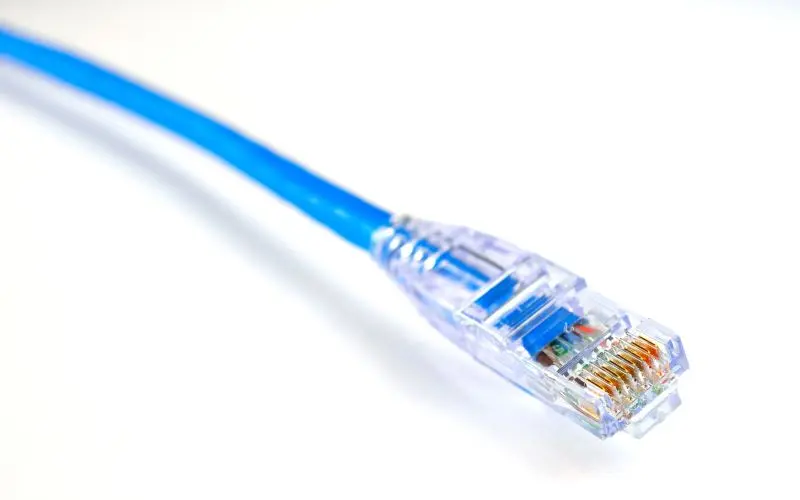Sometimes, even ethernet connection becomes slow, laggy, or patchy. This problem is beyond choosing between ethernet and wi-fi and which one supports data transfers faster. The bad news is that this issue could be caused by several things (which you’d need to find out and resolve). The good news is, it is highly likely that you can perform most of the solutions on your own.

Easy Ways to Improve Ethernet Connection
1) Restart your computer – It’s the most-famous advice for all kinds of PC trouble. Funny enough, in most cases, restarting the computer could give you a temporary fix and improve your ethernet connection since you’re working from a fresh start.
2) Shorten your cable length – You can either adjust the ethernet cable or move your computer closer to the router. In both scenarios, your network will have shorter cables. This way, it wouldn’t be prone to regular drops, buffering, and other connection issues. If you’re using old ethernet cables, maybe this is the time to upgrade to a newer but shorter cable. If you’re using a relatively-new ethernet cable, then cut it to improve your poor connection.
3) Transfer your router – You can access the Ethernet connections easily, unlike wi-fi which requires you to plan out your home or office to locate the best internet signal spots. The spot closest to the router is always faster than spots far from the device. And because you’ll be using shorter ethernet cables when you move the router closer to your PC setup, you’ll automatically increase connection speeds.
4) Scan for viruses and malware – Any threat to your computer affects your internet speed because the virus or malware bogs down all processes. If you have an anti-virus or anti-malware program, make sure to scan and fix or remove these threats if you find any.
5) Switch to a different port on your router – At the back of most routers, you’ll find two or more slots to connect your device. If you’re experiencing lags, try to switch to another port and see if that one fares better.
6) Restart your router – Like restarting your computer, restarting the router gives it a fresh start. Sometimes, you should temporarily turn it off, wait for 5 minutes, and turn it back again.
7) Remove background apps and programs – For some people, the connection isn’t the culprit for “slow internet.” If you look closely at your Windows task manager, you see dozens of background apps and programs operating in the background while you work or stream your movies.
8) Upgrade your router driver and firmware- Not many people know how to do this (or that task needs to be done). Still, if your router doesn’t automatically upgrade its driver or firmware, you need to do it manually.
9) Disconnect Any VPN Software – VPNs may be the best solution for browsing the web privately. Still, this tool often slows down your connection, even using ethernet. If you don’t require the VPN enabled for work, make sure to temporarily disable it and go back to using it only when necessary.
10) Clear browser cache and remove unnecessary plugins – Another easy fix is to clear your browser’s cache and regularly check for plugins (then remove unnecessary ones). Doing this ensures your browser performs at 100 percent.
Invest in these 3 Things to Get Better Ethernet Connection
If none of the methods above worked, you might need to spend some cash for:
Buying new ethernet cables – These cables are pretty long-lasting (may withstand daily use for over a decade. But this doesn’t mean ethernet cables cannot be damaged – rodents bite some, and others become problematic due to everyday wear.
You’ll have a lot of ethernet cable category options (each with pros and cons), but you have to pick the cable that your PC and router will be able to accommodate.
Investing in a newer router – If the ethernet cables do not need replacement, the problem could be more serious. Your focus has to shift from the cable to your router. The choice of router is endless and would be based on your budget, technical requirements, and other factors.
Switching to a better internet plan – This could be the most expensive solution to your connection problem, but if nothing you do really works, there’s a big chance that the problem isn’t with your router, ethernet cables, or network. It could be an issue from your ISP or an internet plan that is too limited for your current requirements.
Did you find the technique that helped your ethernet connection improve? If you’re lucky, you’d have to try one or two methods above for your ethernet connection to get better.
